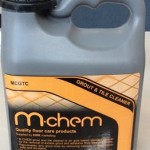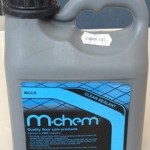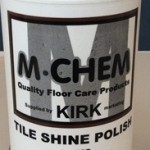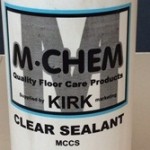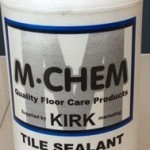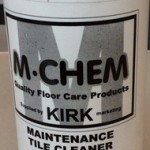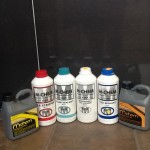Sealants
GET IN TOUCH FOR ANY PRICING REQUESTS, QUOTATIONS OR ENQUIRIES
Tiles 4 All offers a wide selection of cleaning and sealing products to enhance the look of your tile and to protect your investment. Our well trained Sales Staff team will gladly assist you with the correct product choice.
Terminology
It is important to understand some of the descriptions that are in common usage in the tile industry. Key terms include:
| Sealer | Usually means a penetrating sealer that is non-visible on the tile, which soaks into the tile to provide a protective chemical layer inside that slows down the penetration of stains and moisture. Makes it easier to clean out stains. |
| Coating sealer | A sealer that sits on top of the tile surface. Usually is visible and can provide an additional shine to the tile. |
| Topical sealer | Same as coating sealer. |
| Enhancing sealer | A special type of sealer that increases (enhances) the visibility of the stone structure and provides a ‘wet look’ finish i.e. changes the tile colour to be similar to the colour when it is wet. Also has good stain protection. |
| Wet-look sealer | See enhancing sealer. |
| Porosity | A measure of how much water can be absorbed into any tile – generally a % of water (by weight) compared to the weight of the tile. Porosity varies from <0.02% (porcelain) to >25% (coarse sandstone). The more porous the tile, the greater likelihood of moisture penetration and staining. |
What is sealing?
‘Sealing’ in stone terminology is generally accepted to mean the application of a chemical solution to any type of porous surface, which soaks in and penetrates into the tile. The sealer is generally non-visible and is designed to reduce the porosity (and hence stainability) of the surface, making it easier to clean and limiting the depth of penetration of stains. The chemical compounds used as the active sealing agent vary depending on the type of protection required. Similarly, the ‘carrier’ of the sealing agent may be made up of various types of solvents or even water.
Sealing does not create an impenetrable barrier against stains. Penetrating sealers are designed to allow stone to ‘breathe’, permitting the movement of water vapour (and therefore stains) through and into the stone after varying periods of time. The various types of compounds used in sealers will permit different liquids to migrate into the stone faster than others. (With sealers, you get what you pay for!)
Sealer performance and stain resistance therefore varies depending on the sealer composition, the type (and porosity) of the stone, and the stain.
Sealers can also be generally be described as ‘oleophobic’ (repels oils), or ‘hydrophobic’ (repels water), and therefore selection of any sealer should take into consideration the likely staining agents with some solvents or oils staining faster than other contaminants.
Why seal?
In our opinion, natural stone should always be sealed when it is likely to come into contact with liquids or items that can cause stains.
However, stone installed in a ‘safe’ environment (e.g. on high walls in a bathroom where it is unlikely to come in to contact with any staining agent) may not warrant sealing. Yes, the stone may get moisture on the surface but moisture itself will not necessarily stain the stone. So why seal the wall at all? Sealing is therefore not always required.
Some especially porous stone (e.g. some types of sandstone) will allow solvent contaminants to penetrate more than 20mm into the stone if unsealed. Therefore application of a good quality sealer will reduce the penetration of stains into the stone and enable easier removal. If stains are left to sit for a period, they will penetrate anyway.
It is therefore important to understand what sealers are capable of, and the maintenance that should be taken in order to care for a porous surface.
Benefits of penetrating sealers
- Reduce entry of stains into porous stone and tiles, making it easier to clean out contaminants.
- Protect without changing the look of the stone.
- Usually environmentally friendly.
- Reduce the use of strong cleaning agents.
How do penetrating sealers work?
Penetrating sealers provide protection against staining, by forming a chemical bond with the stone under the surface to limit the penetration of staining agents into porous tiles (water, grease foods etc). Sealers vary in effectiveness depending on the quality of the sealer itself, the type of tile (or stone), the staining agent, and the application method used.
All penetrating sealers rely on a ‘carrier’ to transfer a chemical protectant into the tile. Hence the term ‘water-based’ or ‘solvent-based’. This refers to the carrier itself, not the actual protectant. The carrier evaporates and leaves the protectant to cure in the tile, forming a bond within the tile. This reduces the porosity of the tile and reduces the staining effect.
Different protectants work more effectively on different types of tiles, and also on different types of staining agent. There is no single sealer that is the ‘best’ for all tiles against all types of stains. Some sealers are more effective at repelling water, and others better at repelling oils and greases.
All penetrating sealers allow moisture to pass through the chemical bond slowly over time. This is to ensure the tile can breathe and moisture vapour is not trapped inside the stone where it can do damage especially in freeze/ thaw environments.
Therefore contaminants that are left to sit on the tile for extended periods will also pass through the sealer and into the tile body itself. It is important to realize that sealers only provide a limited time protection before contaminants can pass through and cause a stain. The protection time varies with the type of contaminant, the type of sealer, how it has been cleaned, and its age. Spills and contaminants should be wiped off the surface as soon as possible so that they do not have time to pass through the sealer.
What are topical sealers, and how do they work?
‘Topical’ sealers or coating sealers provide protection by forming a barrier coating on the surface of the tile or stone. They bond into the top layer sometimes by partly penetrating into the pores of the tile, and are then usually visible on the surface. Some specific types of coating sealers have allowed small amounts of moisture migration into and out of the stone, but most often these sealers are impervious, preventing the entry of almost all types of contaminants.
Topical sealers can also be used to provide wear protection for some of the softer stones such as limestone and marble, providing an easier-to-maintain finish than the stone itself. Regular maintenance of the coating can generally be undertaken by trained cleaning staff. However, topical sealers can also change the look of the stone with a gloss finish that can sometimes look artificial.
While topical coatings are generally used in commercial flooring situations, there are other special types of coatings that are being developed for high-risk environments such as marble bar-tops, kitchen bench tops and bathroom vanities, extending the application of stone in these areas and providing a coating resilient to acids such as vinegar, alcohol, urine, cleaning agents and so on.
Benefits of topical sealers
- Provide a barrier coating resistant to most spills and contaminant.
- Can be maintained by cleaning staff.
- GROUT AND TILE CLEANER MCGTC
- CLEAR SEALANT MCCS
- TILE SHINE POLISH MCTSP
- CLEAR SEALANT MCCS
- TILE SEALANT MCTS
- MAINTENANCE TILE CLEANER MCMTC
- VARIETY OF MAINTENANCE TILE CLEANERS/SEALERS












